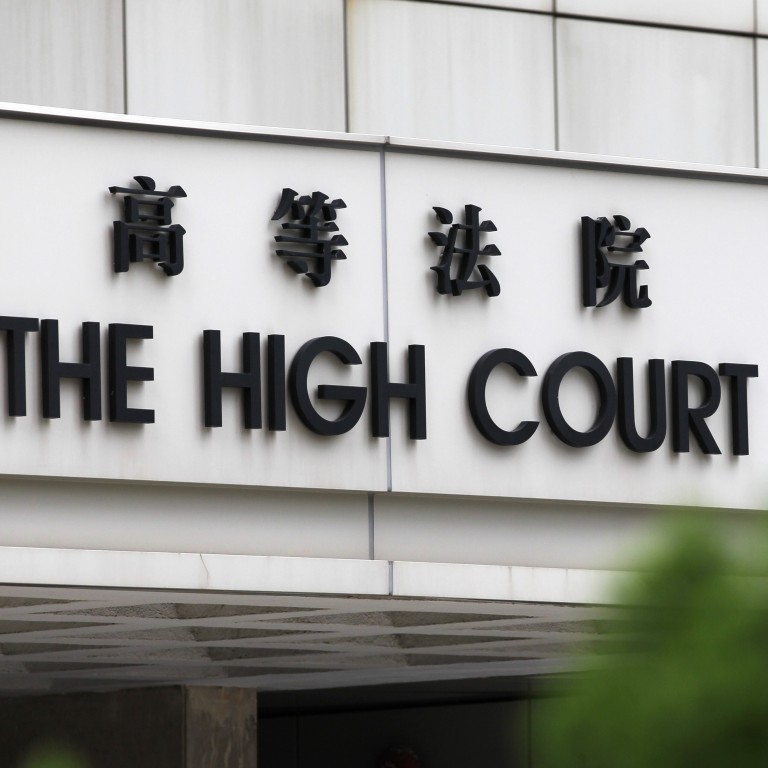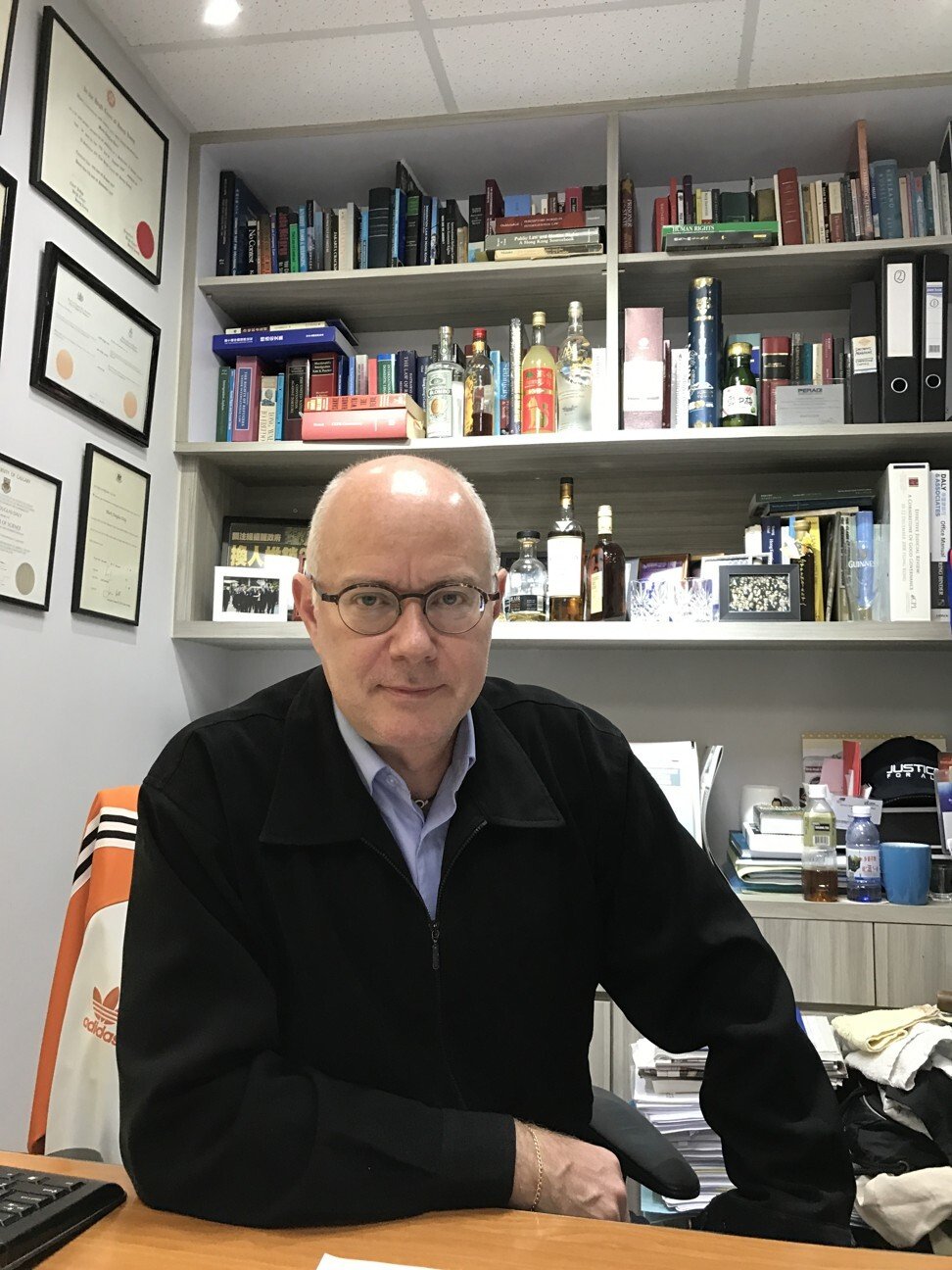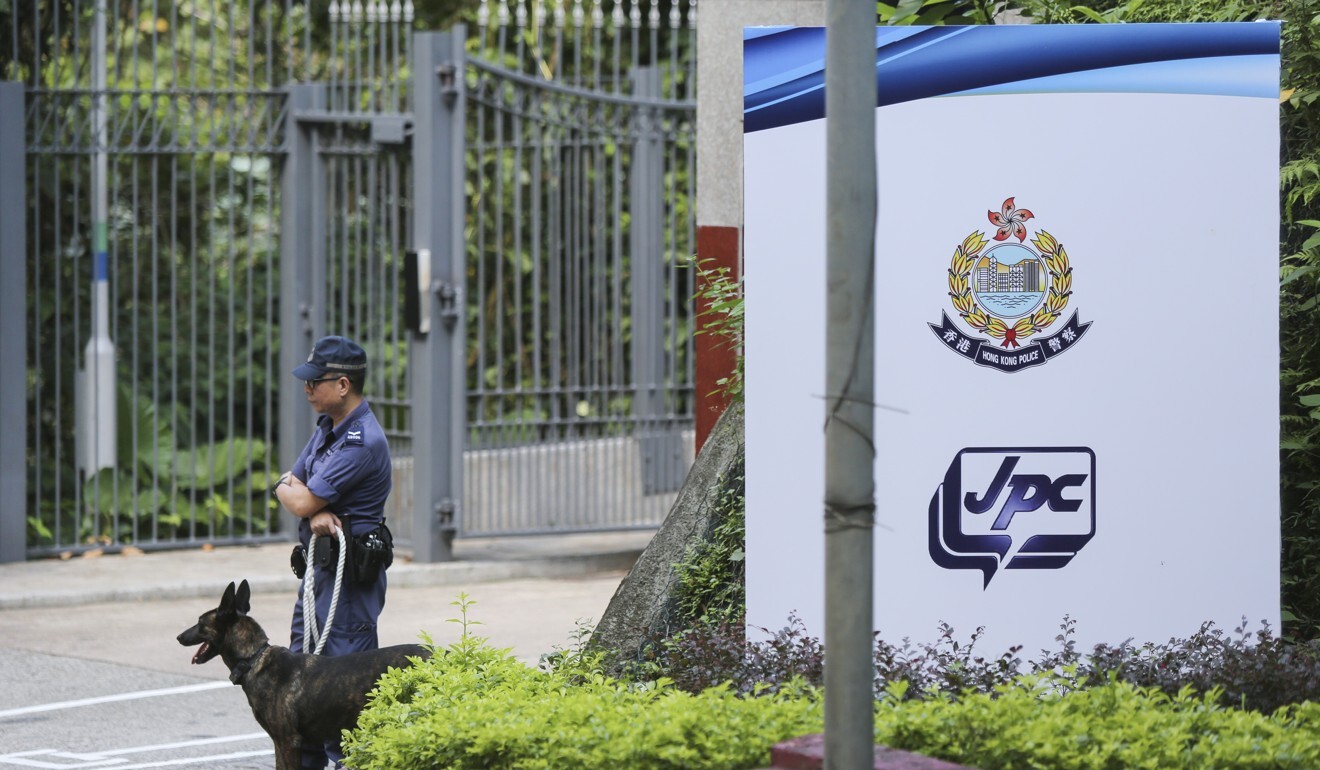
Coronavirus: Hong Kong family quarantined on return from South Africa accuses Carrie Lam of exceeding confinement powers
- Founder of Naked Group seeks judicial review of system that automatically sends arrivals from some countries into government facilities
- Lawyers say the family should be able to isolate at home, argue city leader does not have power to force their confinement in centres under the legislation
The application for judicial review came from Leslie Grant Horsfield, founder of the sustainable hospitality company Naked Group, and his wife, Delphine Yip Hoi-yan, along with their three children, aged between 22 months and 9 years old, and domestic helper Wyndalyn Lamud de Jesus.
Court filings made available on Tuesday showed they had expected to isolate in their Aberdeen house but were instead sent to Junior Police Call Permanent Activity Centre and Integrated Youth Training Camp in Pat Heung upon arrival on May 14, when they tested negative for Covid-19.
Quarantine order for Hongkonger back from Pakistan ‘not racist’
Hong Kong has adopted a blanket policy for all arrivals from a number of countries – including South Africa, India, Bangladesh, Pakistan and Nepal – to be automatically placed in government-run quarantine for 14 days.
The detention was authorised under the Compulsory Quarantine of Persons Arriving at Hong Kong from Foreign Places Regulation, adopted by the city’s chief executive under section 8 of the Prevention and Control of Disease Ordinance.
But counsel Timothy Parker and solicitor Mark Daly, for the applicants, argued that they must be allowed to isolate at home because their detention in camp was unlawful when the chief executive had no power to make the regulation in the first place.
They argued that the language in section 8 was not intended to convey a power to restrict residents’ right to liberty, unlike the repealed Quarantine and Prevention of Disease Ordinance that expressly provided the chief executive with such powers.
“That power was repealed, and quite deliberately shifted to [the secretary for food and health] under the replacement ordinance,” they said, referring to section 7.

They also called the detention arbitrary as they argued there was no proper basis for concluding that all entrants from South Africa posed a higher risk than other arrivals – such as from the United States and United Kingdom – who could quarantine at home.
“Being detained in the camp is a far greater inference with their liberty rights than being confined to their own home,” Parker wrote in the application filed to the High Court. “The burden rests on the government to demonstrate that their detention at the camp is not arbitrary or unlawful.”
The High Court is expected to reach a decision on Wednesday at the earliest.
Shah had similarly questioned why Pakistanis were automatically sent to government-run quarantine centres, but did not challenge the legality of his detention, unlike in the present case.
The latest application also revealed complaints of “extremely poor and unsanitary” conditions in camp that allegedly rendered the premises “not safe or habitable, especially for young children”.
“While we did not have high expectations of the facilities, we were absolutely flabbergasted and shocked at the living conditions of the accommodation that was offered to our family,” she wrote on May 15. “Please consider my plea from the perspective of a parent and a spouse.”

Yip said they were provided with “totally inedible” food and the unit was “absolutely dirty and filthy”, with “dust, mould and ants everywhere”, and a dead cockroach on one bed.
She said the conditions threatened her children’s health and raised her husband’s blood pressure.
They were also “extremely alarmed” by the news that close contacts of the infected had moved in next door.
“This experience has been extremely traumatic and stressful to all of us,” Yip continued. “We are not asking the HK government for special treatment or exception, but for us to be treated fairly based on science and medical facts.”
Hong Kong beaches, pools to reopen but other Covid-19 rules remain
In a reply quoted by the applicants, the government said the Centre for Health Protection considered a recent upsurge in the number of infections in South Africa, its surveillance and testing capability as well as the duration of the returnees’ stay in the country.
“From the public health perspective, it would be more prudent to keep the returnees in the quarantine centre to carefully monitor their health conditions,” Dr Shu Bo-yee wrote.
Shu also said the arrangement would allow returnees to receive better support if they developed symptoms.
Hong Kong has 1,055 confirmed infections, including four imported cases from South Africa, as of Tuesday night.
Help us understand what you are interested in so that we can improve SCMP and provide a better experience for you. We would like to invite you to take this five-minute survey on how you engage with SCMP and the news.

